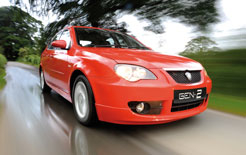
CHILDREN are at greater risk from harmful small particles in traffic pollution reported the BBC. The news will have alarmed many motorists.
However, the situation could be vastly improved with greater use of LPG (Liquified Petroleum Gas) technology.
LPG vehicles produce fewer harmful emissions that contribute to environmental and health problems than traditional road fuels.
These include the microscopic particles, known as PM10s, cited in the study. The study was led by Professor Jonathan Grigg at the Centre for Paediatrics at Barts and the London School of Medicine and Dentistry.
LPG vehicles emit up to 120 times less PM10 particles than a diesel. Added benefits include 17% less carbon dioxide emissions than petrol; 2% less CO2 than a diesel; and 120% less NOx than petrol and staggering 2,000% less than diesel.
Replacing petrol and diesel vehicles with LPG alternatives could help reduce the severity of the situation children face uncovered by the BBC.
We have always known that LPG is a viable alternative to petrol and diesel and a much greener fuel. The recent study confirms that PM10 particles are extremely harmful and can lead to respiratory disorders such as asthma in children and more serious conditions in later life.
The number of LPG vehicles is travelling in the right direction. In 2008 we saw an increase of 36% in the number of LPG conversions carried out year on year. There are now 155,000 LPG vehicles on the roads.
The rise in popularity of LPG is also due to the cost savings that can be enjoyed. Motorists running LPG vehicles can expect to save up to 40% per cent on fuel costs. And, in many cases, can recover the cost of a conversion in under two years.
LPG vehicles also benefit from up to 100% exemption from the London Congestion Charge.
Access to LPG refuelling stations has also improved. There are now more than 1,400 public access LPG refuelling sites with the majority of these on petrol forecourts.
Further information
Autogas Limited, a joint venture between Calor and Shell, currently supplies around 220 outlets in the UK. A full list can be found at www.autogas.ltd.uk. In addition, Calor supplies autogas from over 150 outlets through its Calor Centres, Morrisons supermarkets and other independent sites.
To view the original BBC report go to: https://news.bbc.co.uk/1/hi/sci/tech/8092182.stm
Small particle emissions are related to health effects including increased risk of heart and lung disease and problems such as asthma. All figures taken from the European Emissions Testing Programme 2003
For more on fuel supplies and bulk tank installation visit www.lpg-vehicles.co.uk.







